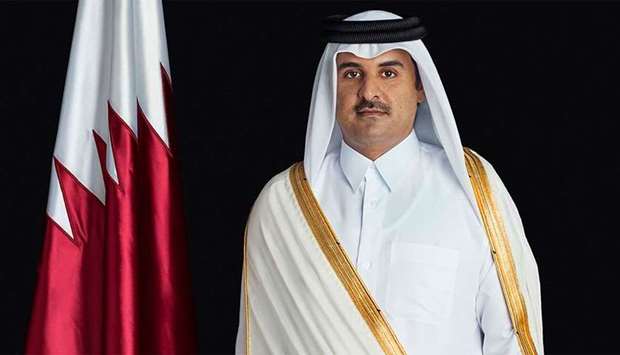His Highness the Amir Sheikh Tamim bin Hamad al-Thani will officially open the National Museum of Qatar (NMoQ) on Wednesday in its new building, Qatar News Agency (QNA) announced on Tuesday. The Amir will deliver a speech on the occasion.
The opening ceremony will be attended by a number of heads of brotherly and friendly countries, as well as a number of prominent political, cultural, artistic and media figures.
A large group of heads of international companies and institutions, museum directors, academics, film directors, celebrities and those interested in the field of heritage from around the world will also attend the event, QNA added.
Described as an immersive and experiential museum, NMoQ is organised in three “chapters” — Beginnings, Life in Qatar, and Building the Nation — presented in 11 galleries, tells the story of Qatar’s past, present and future through an immersive, multilayered experience.
NMoQ’s exhibition galleries and public spaces include a multitude of personal histories and interpretations of Qatari identity, among which are pieces by some of the country’s brightest artistic talents.
Four Qatari artists have created commissioned pieces that will be displayed inside NMoQ as part of Qatar Museums' vast Public Art Programme.
Qatari artists Aisha Nasser al-Sowaidi, Ali Hassan, Bouthayna al-Muftah, and Sheikh Hassan bin Mohamed al-Thani were chosen based on their body of work and artistic vision.
Each has taken personal histories and memories to create site-specific pieces that will connect visitors to the story of Qatar and its people in unexpected ways.
The museum’s 112,000sq m public park, which features family-friendly interactive learning environments, and walkways and more, also hosts the largest installation ever conceived by French artist Jean-Michel Othoniel.
Titled ‘Alfa’, it comprises 114 individual black fountains, shaped to resemble Arabic calligraphy or the tall reeds that calligraphers use to make their pens, which are activated once an hour.
Each gallery is an all-encompassing environment, which tells its part of the grand story through a creative combination of elements such as music, storytelling, archival images, oral histories and evocative aromas. Designed as distinctive experiences, these environmental galleries also contextualise an impressive array of archaeological and heritage objects, manuscripts, documents, photographs, jewellery and costumes.
One of the most spectacular artefacts at NMoQ’s collection, and a testament to the flourishing pearl-trade relations between the Indian subcontinent and the Arabian Gulf, is the Pearl Carpet of Baroda.
The Al Zubarah site yielded another object of great significance that will be on view at the NMoQ: Al Zubarah Qur'an, which is the oldest Qur'an created in Qatar and was written in Al Zubarah at the beginning of the 19th century by Ahmed bin Rashed bin Juma bin Helal al-Muraikhi.

